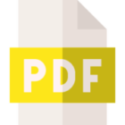Irena Emilova – New Bulgarian University, ZIP 1618 Sofia, Bulgaria 21 Montevideo str, Bulgaria
Margarita Misheva – New Bulgarian University, ZIP 1618 Sofia, Bulgaria 21 Montevideo str, Bulgaria
Violeta Doneva-Yankulova – New Bulgarian University, ZIP 1618 Sofia, Bulgaria 21 Montevideo str, Bulgaria
Keywords: Model;
Economic efficiency;
Development;
Experiences;
Sofia;
Destination
Abstract: The research examines current trends in destination development and the increasing demand for services that create experiential value through additional services and travel opportunities. This pursuit of experiences aims to facilitate rejuvenation, capitalizing on the abundant tourism resources, exemplified by Sofia city.
Objective: This study aims to construct a comprehensive tourism experiential model for the given destination, employing an integrated approach that harnesses the untapped potential of various resources within the tourist area. The primary goal is to enhance the destination’s economic efficiency. This approach envisions multifaceted benefits, including bolstering the tourism sector, contributing to GDP growth, and fostering sustainable advancement for urban destinations. Furthermore, it aims to foster year-round growth in demand and supply for tourist products and services in Sofia. The focal point lies in exploiting the destination’s developmental prospects, fueled by evolving consumer preferences, driven by the quest for authentic and distinct travel experiences.


9th International Scientific ERAZ Conference – ERAZ 2023 – Conference Proceedings: KNOWLEDGE BASED SUSTAINABLE DEVELOPMENT, hybrid – online, virtually and in person, Prague, Czech Republic, June 1, 2023
ERAZ Conference Proceedings published by: Association of Economists and Managers of the Balkans – Belgrade, Serbia
ERAZ conference partners: Faculty of Logistics, University of Maribor, Maribor (Slovenia); University of National and World Economy – UNWE, Sofia (Bulgaria); Center for Political Research and Documentation (KEPET), Research Laboratory of the Department of Political Science of University of Crete (Greece); Institute of Public Finance – Zagreb (Croatia); Faculty of Tourism and Hospitality Ohrid, University of St. Kliment Ohridski from Bitola (North Macedonia)
ERAZ Conference 2023 Conference Proceedings: ISBN 978-86-80194-72-1, ISSN 2683-5568, DOI: https://doi.org/10.31410/ERAZ.2023
Creative Commons Non Commercial CC BY-NC: This article is distributed under the terms of the Creative Commons Attribution-Non-Commercial 4.0 License (https://creativecommons.org/licenses/by-nc/4.0/) which permits non-commercial use, reproduction and distribution of the work without further permission.
Suggested citation
Emilova, I., Misheva, M., & Doneva-Yankulova, V. (2023). Development of a Tourist Experience Model with the Aim of Increasing Economic Efficiency – On the Example of the Destination Sofia. In V. Bevanda (Ed.), ERAZ Conference – Knowlegde Based Sustainable Development: Vol 9. Conference Proceedings (pp. 345-356). Association of Economists and Managers of the Balkans. https://doi.org/10.31410/ERAZ.2023.345
References
Ashworth, G. J. (2008). Urban Tourism: Reflections on an Emerging Field. In M. Smith & G. J. Ashworth (Eds.), The Study of Tourism: Anthropological and Sociological Beginnings (Vol. 2, pp. 97-117). Routledge.
Buhalis, D., & Amaranggana, A. (2015). Smart Tourism Destinations Enhancing Tourism Experience Through Personalisation of Services. Information and Communication Technologies in Tourism, 377-389. https://doi.org/10.1007/978-3-319-14343-9_28
Emilova, I. (2020). The invisible part of generating experiences. https://plus.cobiss.net/cobiss/bg/bg/bib/nbkm/45264136#full
Emilova, I. (2020). The new experiences in tourism. UNWE.
Emilova, I. (2021). The economy of experiences in a tourism context. Yearbook of the Department “Administration and Management”, item 6.
Emilova, I. (2022). Designing tourism experiences. Veliko Tarnovo.
Emilova, V. (2017). Urban Tourism: Complex Phenomenon on an International Scale. Journal of Tourism & Hospitality Management, 5(3), 123-135.
Gentile, C., Spiller, N., & Noci, G. (2007). How to Sustain the Customer Experience:. European Management Journal, 25(5), 395-410. https://doi.org/10.1016/j.emj.2007.08.005
Global Metrics. (2021). Survey of foreign tourists, September 2021.
Hoarau, J., & Kline, C. (2014). Values and concern: Drivers of innovation in experience-based tourism, Volume 19, Issue 1, https://doi.org/10.1177/1467358416683
Ianeva, M., Basmadzhieva, S., Doneva, V., & Georgieva, R. (2022). Consulting Assessment of the Potential for Development of Health Tourist Areas: The Case of Bulgaria. In Tourism & Hospitality Industry 2022, Congress Proceedings (pp. 97-112). https://doi.org/10.20867/thi.26.17
Juttner, U., Schaffner, D., Windler, K., & Maklan, S. (2013). Customer service experiences: Developing and applying a sequentialincident laddering technique. European Journal of Marketing, 47(5/6), 738-769. https://doi.org/10.1108/03090561311306769
Mascarenhas, O. A., Kesavan, R., & Bernacchi, M. (2006). Lasting customer loyalty: a total customer experience approach. Journal of Consumer Marketing, 23(7), 397-405. https://doi.org/10.1108/07363760610712939
Metropolitan Municipality. (2009). Metropolitan Municipality Environmental Protection Program 2010-2020, Part I. Environmental Protection Act. https://www.moew.government.bg/en/environmental-protection-act-7628/
Misheva, M. (2019). Tourist attractions – role and importance for destinations. Yearbook of the “Administration and Management” Department, item 4, NBU.
National Development Programme Bulgaria 2030. (2020). https://www.mtc.government.bg/sites/default/files/nationaldevelopmentprogrammebulgaria2030-en.pdf
NSRD (National Strategy for Regional Development), 2012-2022. (2012). https://www.mrrb.bg/bg/national-regional-development-strategy-of-the-republic-of-bulgaria-2012-2022/
Prayag, G., Hosany, S., Muskat, B., & Del Chiappa, G. (2017). Understanding the Relationships between Tourists’ Emotional Experiences, Perceived Overall Image, Satisfaction, and Intention to Recommend. Journal of Travel Research, 56(1), 41-54. https://doi.org/10.1177/0047287515620567
Richards, G., & Wilson, J. (Eds.). (2007). Tourism Development Trajectories: From Culture to Creativity? Tourism, Creativity and Development, Routledge, London.
Schmitt, B. (2009). Customer Experience Management. Handbuch Kommunikation, 697-711. https://doi.org/10.1007/978-3-8349-8078-6_33
State Gazette No. 19, 13.03.2009. ENVIRONMENTAL PROTECTION ACT.
Wang, Y., Naumann, U., Wright, S. T., & Warton, D. I. (2012). mvabund- an R package for model-based analysis of multivariate abundance data. Methods in Ecology and Evolution, 3(3), 471-474. https://doi.org/10.1111/j.2041-210x.2012.00190.x
Additional reading
Emilova, I. (2023). Socio-cultural dimensions of urban tourism in the context of an experience economy. In Collection of scientific reports from the VI International Scientific and Practical Conference “Sociocultural Codes of Modern Development” – Plovdiv, 2023.
National Strategy for Sustainable Tourism Development in the Republic of Bulgaria 2014-2030 and Action Plan 2017-2020 – November 2019.
